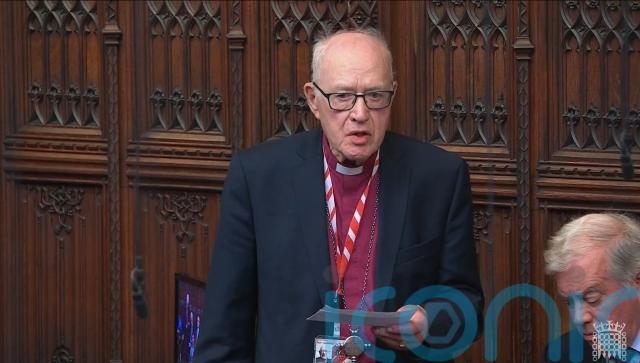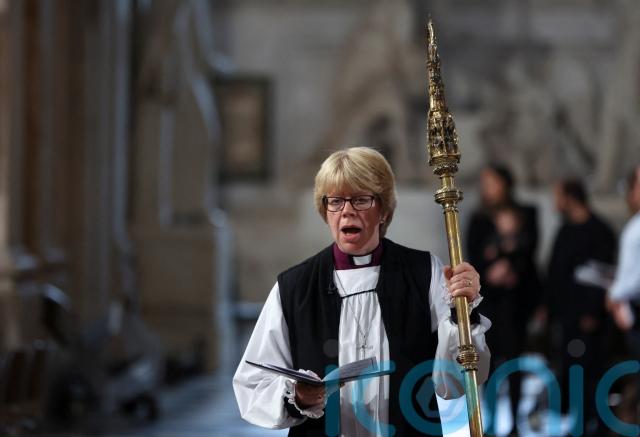
Bishops and peers were warned not to stand in the way of legalising assisted dying, as a proposed new law moved a step closer in England and Wales.
The Terminally Ill Adults (End of Life) Bill passed second reading stage in the House of Lords on Friday – the furthest any such legislation has progressed through Parliament at Westminster.
The Bill was nodded through, meaning no vote was taken – as is usual for this stage of legislation in the House of Lords.

But it is now set to go through further “unprecedented” scrutiny by a select committee of peers before moving along any further in the parliamentary process after an amendment by Baroness Luciana Berger was agreed to.
Archbishop of York Stephen Cottrell, the Church of England’s most senior bishop, was said by Lord Forsyth of Drumlean to have “threatened to vote down the Bill” at a later stage in its progress through Parliament and he urged him to “think again about that”.
Mr Cottrell, who described the Bill as “wrong because it ruptures relationships” and will “turbocharge” the agonising choices facing poor and vulnerable people, said he and the Bishop of London Dame Sarah Mullally are prepared to force a vote on the legislation at a later third reading stage.
He said: “If this Bill does reach a third reading, then we from these benches will be prepared to table an amendment to offer us a vote.”
While Bills at third reading in the Lords are presented to peers for approval, they are not always put to a vote.
A Bill’s usual passage through the Lords sees second reading followed by whole-House committee scrutiny then report stage, then third reading.
But Lady Berger’s amendment will mean the committee of the whole House cannot begin before November 7.
Her smaller select committee, of likely around a dozen peers, will begin on October 20 and hold six meetings over three weeks.
Potential witnesses to be called include Health Secretary Wes Streeting and Justice Secretary David Lammy, both of whom voted against the Bill in the Commons.
Lady Berger told peers on Friday that the Bill “currently falls short”.
Following debate, she hailed the establishment of the smaller committee as “a victory for those of us that want proper scrutiny of how these new laws would work, the massive changes they could make to the NHS and how we treat people at the end of their lives”.
Friday’s debate, the second of a two-day session which began last week and lasted around 12 hours in total, once again heard impassioned debate from staunch supporters and firm opponents.
A majority of peers shared their objections to the Bill during the two-day session.
Former archbishop of Canterbury, Lord George Carey, warned that both his peers in the House and Church bishops risked their legitimacy as major institutions in public life if they attempted to block the Bill.
Lord Carey – who was the Church of England’s top bishop for 11 years – is at odds with his religious colleagues on the issue and said they were not representing their own Church in their opposition to the Bill.
He told peers: “Do we really want to stand in the way of this Bill? It will pass, whether in this session or the next. It has commanding support from the British public and passed the elected House after an unprecedented period of scrutiny.
“Both this House and the Church are in the midst of renewed public debate as to our role in society.

“And I pray, indeed pray, that both these institutions – which I hold so dearly for the importance of our role in public life – do not risk our legitimacy by claiming that we know better than both the public and the other place (the Commons).”
Mr Cottrell sat alongside Dame Sarah Mullally on the Lords’ red benches as Lord Carey addressed them.
Mr Cottrell did not directly refer to Lord Carey’s comments but told the peers he was confident he represented “views held by many, not just Christian leaders, but faith leaders across our nation in whom I’ve been in discussion and written to me”.
Lord Charlie Falconer, the Bill’s sponsor in the Lords, said while peers have “got a job of work to do”, elected MPs in the Commons should have the final decision on the Bill, rather than unelected members of the upper chamber.
He said: “I have heard people say, ‘Oh well, we can say no to this Bill’. Ultimately, on an issue such as this, in our system, somebody has got to decide, and it’s not the electorate because it’s never in anybody’s manifesto, with the exception of the Greens.
“Therefore Parliament has got to decide, and ultimately, in our system, that means it will have to be those who are elected, not those who are unelected, who make that decision.”
The legislation proposes allowing terminally ill adults in England and Wales, with fewer than six months to live, to apply for an assisted death.
This would be subject to approval by two doctors and a panel featuring a social worker, senior legal figure and psychiatrist.
Assisted dying will become law in England and Wales only if both the House of Commons and House of Lords agree on the final wording of the Bill.
If it does pass into law, the Government has four years in which to get an assisted dying service into place, meaning it could be 2029/30 before the first assisted death happens.
Subscribe or register today to discover more from DonegalLive.ie
Buy the e-paper of the Donegal Democrat, Donegal People's Press, Donegal Post and Inish Times here for instant access to Donegal's premier news titles.
Keep up with the latest news from Donegal with our daily newsletter featuring the most important stories of the day delivered to your inbox every evening at 5pm.